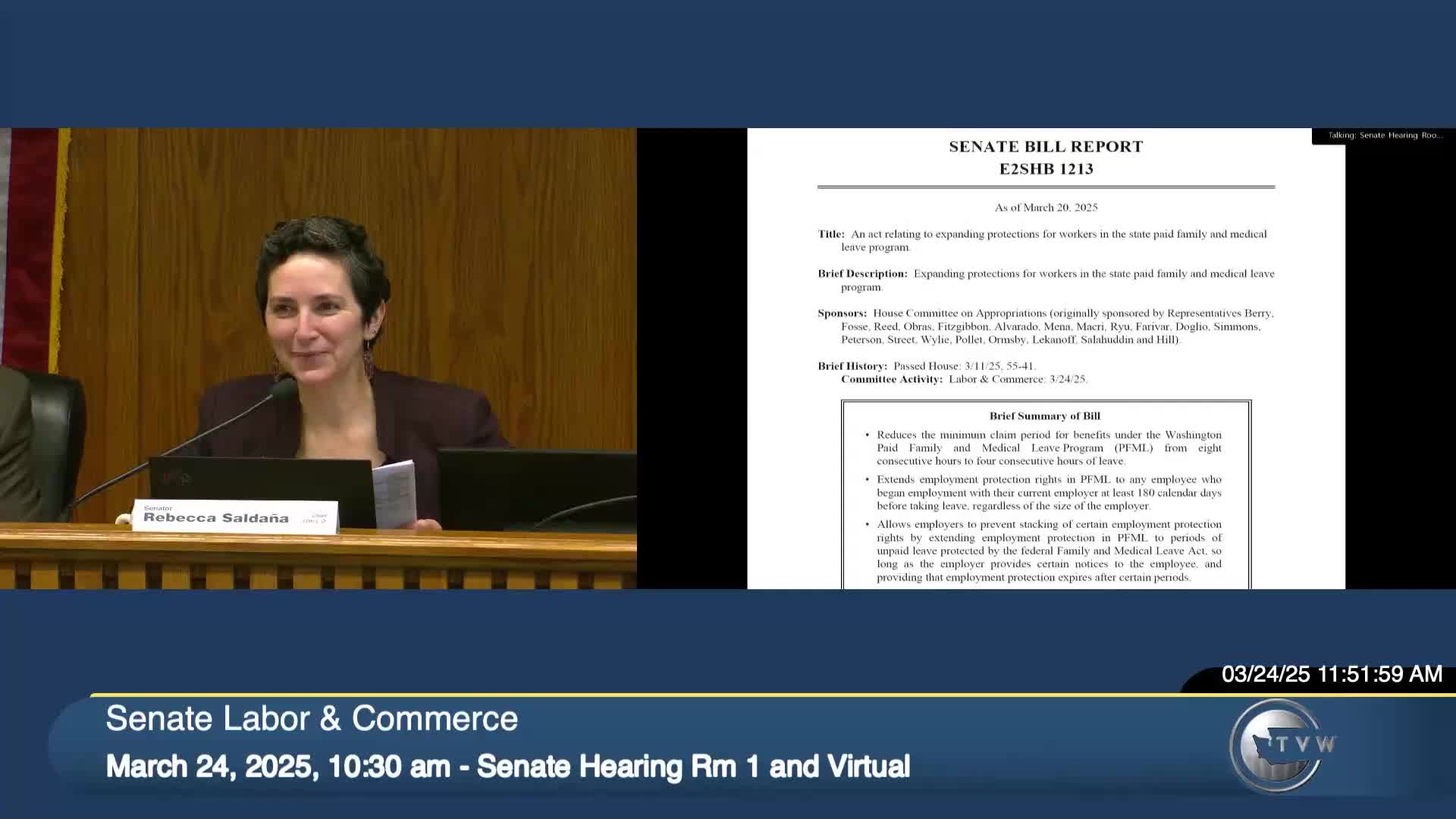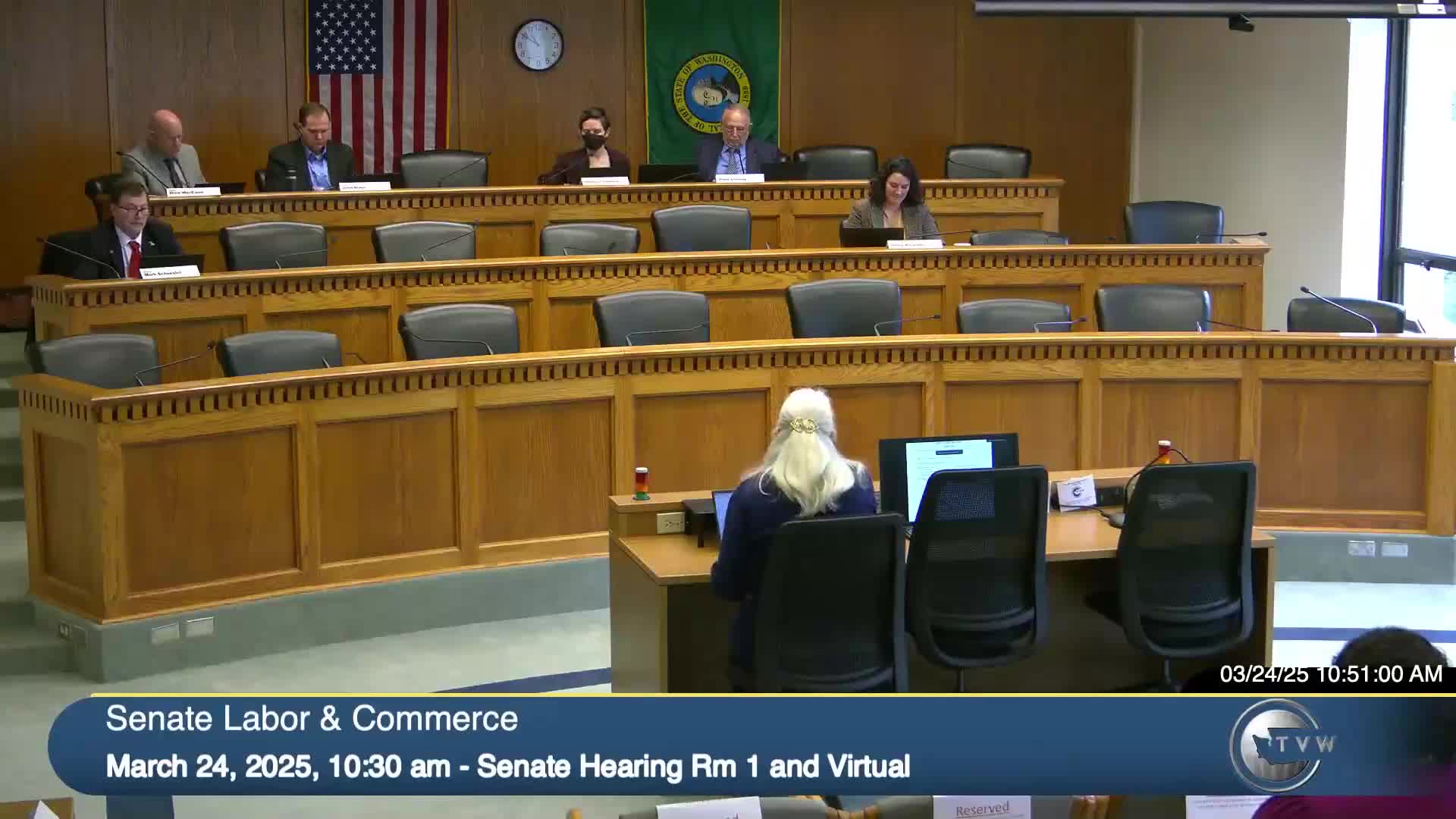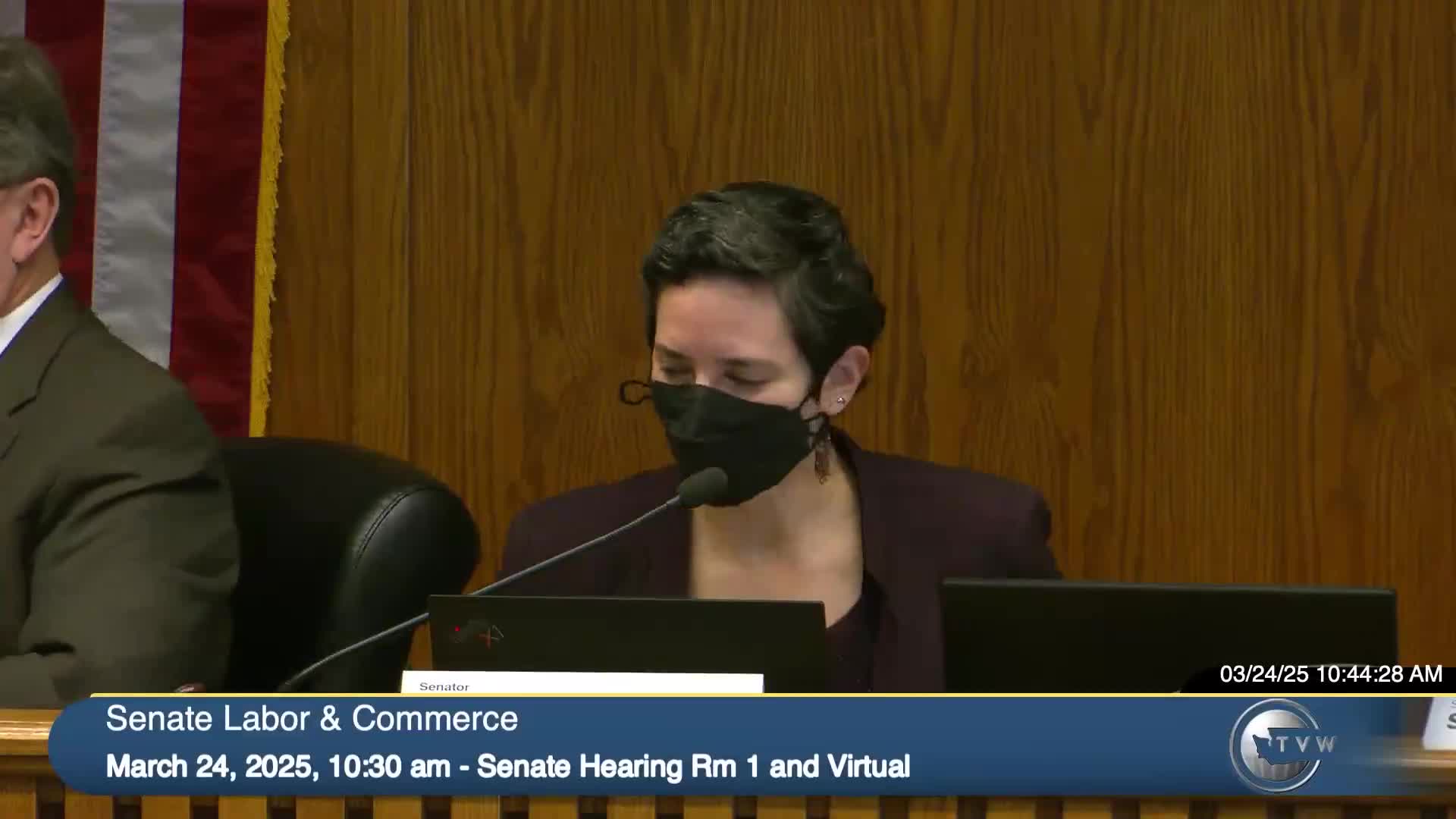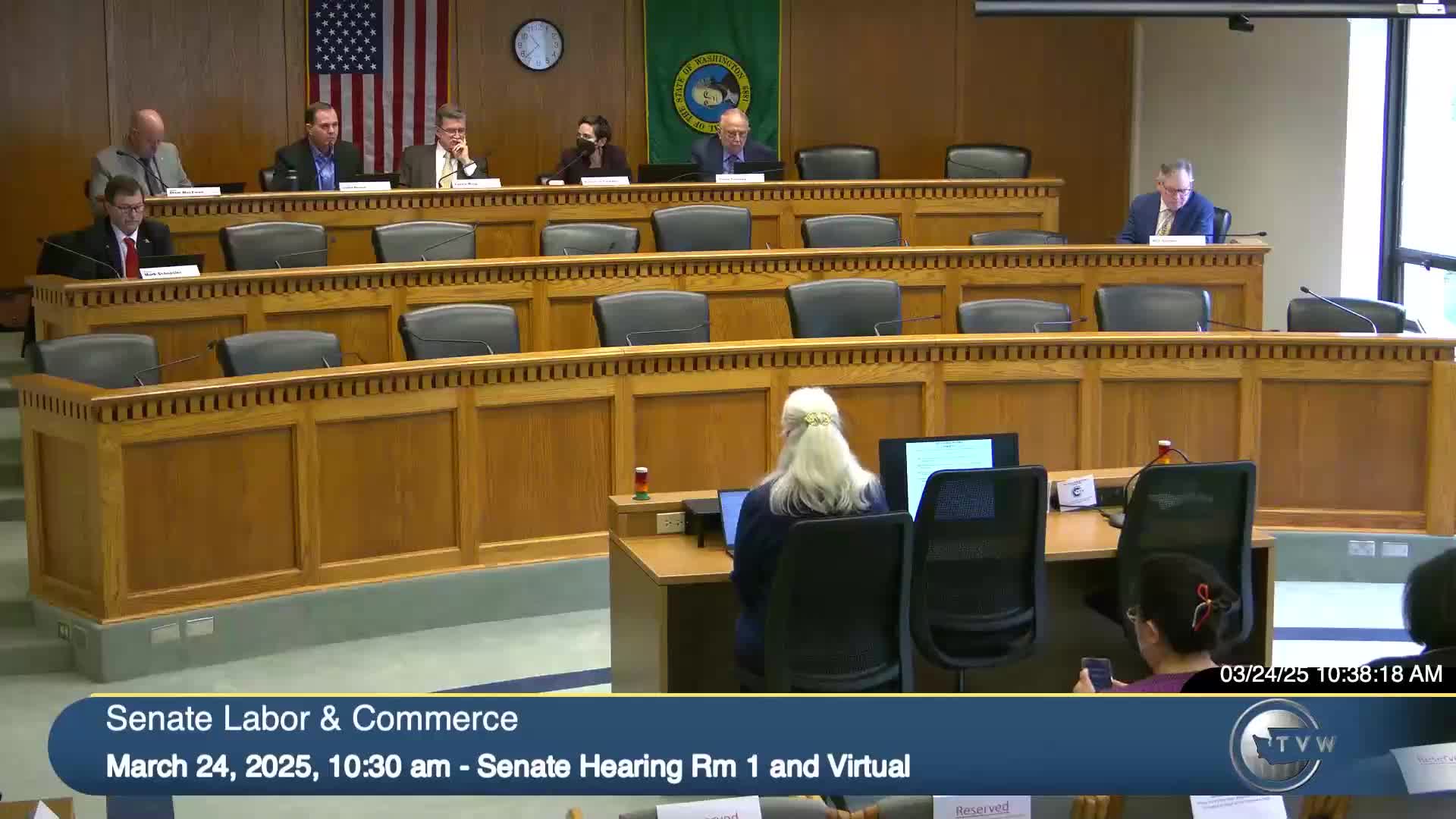Article not found
This article is no longer available. But don't worry—we've gathered other articles that discuss the same topic.

Hearing divides over expanding job protections under Washington’s paid leave program

Committee weighs bill giving employees quicker access to personnel records

Panel hears cosmetology licensure compact; DOL fiscal questions raised

